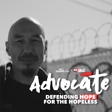![What a Safe Home Should Be Accomplishing [REPLAY] | Safe Home Series, Part 3 image](https://media.zencastr.com/cdn-cgi/image/width=54,quality=85/image-files/640a1493181f834e694b13d6/20777798-06ea-438b-8fe4-26e91f8b685e.png)
What a Safe Home Should Be Accomplishing [REPLAY] | Safe Home Series, Part 3
In this replay of our Trafficking Free America Podcast, we go deep into the real-world structure, phases, and outcomes of what a safe home should truly accomplish for survivors of human trafficking.
Host Jeremy Hicks sits down again with Brandy Cristafulli, founder of Life Recaptured, to talk about every step of the recovery journey—from intake to empowerment to independence. Brandy shares lessons learned, mistakes made, and the incredible power of consistent structure, compassionate boundaries, and trauma-informed care.
If you want to start, support, or understand what a quality survivor-centered safe home looks like, this is your blueprint.
🌐 Learn More
USIAHT: https://www.usiaht.org
Life Recaptured: https://www.liferecaptured.org
Become an Abolitionist: https://www.usiaht.org/give
⏱ Timestamps
00:00 – Welcome back: The most detailed episode yet
01:22 – Brandy’s journey of ongoing education and mistakes
02:12 – The hard truth: sometimes you must turn someone away
03:04 – What a safe home should be accomplishing at each phase
04:34 – Detox and assessment: when to say no
06:19 – Intake: learning family background, triggers, and trauma
08:14 – The cost of care: $225/hr for trauma-informed therapy
10:00 – Daily rhythm: structure, relationship, restoration
12:05 – From assessment to residential to empowerment
13:36 – How survivors reclaim power in the empowerment phase
14:19 – Independence: job, rent, responsibility, and tracking
15:18 – A restaurant and boutique run by survivors
17:14 – Dream boards, group service, and core values
19:08 – Why healing and discipline must happen together
21:01 – Real-world readiness: barcodes, brands, and resumes
23:45 – “I don’t have a dream”—restoring purpose with joy
25:02 – Themed dinners and community-based healing
26:14 – Why safe homes must be long-term investments
27:17 – No one “ages out”—phases guide the pace
28:59 – “One girl is worth it”—don’t measure success by numbers
29:55 – Exits: the hardest and most necessary part
32:01 – You can’t save them all—but you must protect the house
36:42 – Why training, not just heart, keeps survivors safe
🎯 What You’ll Learn
- How to set up four clear recovery phases in a safe home
- Why boundaries and structure matter more than emotion
- The emotional toll of running a home — and how to survive it
- What it means to graduate from a safe home (and when not to)
- How Christ-like love includes discipline, exits, and grace
- What it takes to build a community that restores lives
🎙 If this episode moved you, here’s how to take action:
✅ Start training with an organization like Selah Freedom
✅ Support a safe home financially or with your skills
✅ Share this episode with your network
✅ Pray for and support survivor leaders and caregivers
#SafeHomeSeries #TraffickingFreeAmerica #BrandyCristafulli #LifeRecaptured #USIAHT #EndHumanTrafficking #PodcastReplay #SurvivorCare #JeremyHicks #FaithInAction

